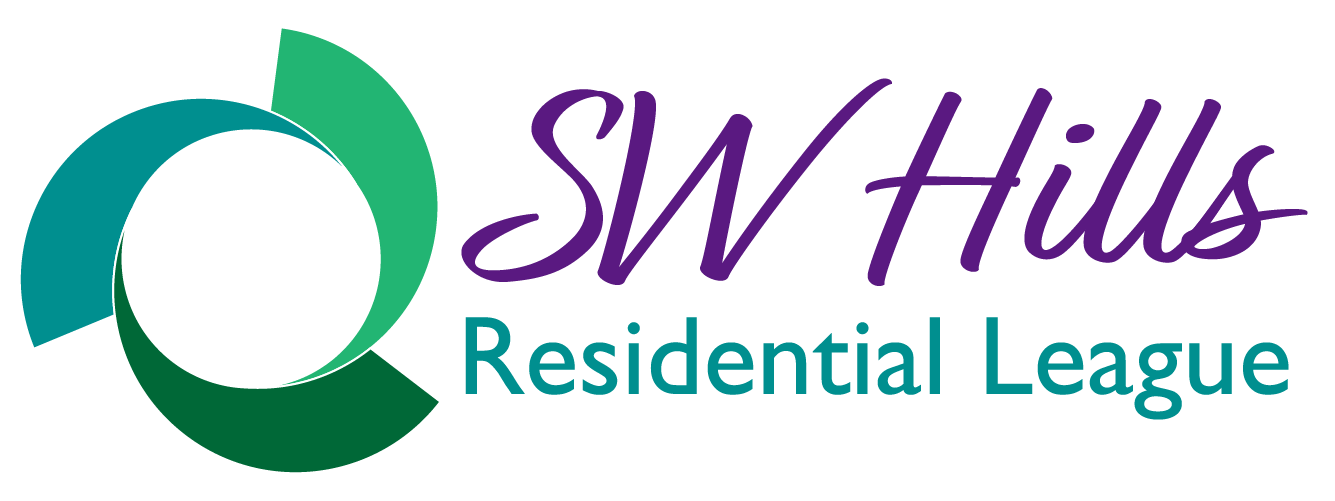A New York Times columnist wrote a fascinating piece titled The Benefits of Talking to Strangers in which she explored the positive effects of casual relationships on well-being and health. This has become even more obvious to many of us because of the partial quarantine we are living through. And it also brought to mind the many Neighborhood Watch southwest neighborhoods benefit from.
Neighborhood Watch is a crime prevention program that stresses education and focuses on building stronger, more resilient and better prepared neighborhoods. Today’s Watch groups incorporate activities and events that address crime prevention issues, but also promote emergency preparedness and bring unity to a neighborhood. Neighborhood Watch groups participate in community cleanups, potluck socials and other events that improve the quality of life for residents. Although the City of Portland did away with its own Crime Prevention Program and no longer sells the Neighborhood Watch signs, that doesn’t mean you can’t start your own Neighborhood Watch group. There are already a number of organized Neighborhood Watch groups in Southwest Portland.
Good training will show residents how to avoid being easy targets of property crime and teach neighbors how to help themselves by identifying and reporting criminal activity. Neighborhood Watch is not at all about vigilantism. Membership in a group does not give one permission to take the law into one’s own hands. Instead, participants are educated about when to call 9-1-1, a non-emergency reporting system, or neither. Members should also be trained to check their implicit biases and use friendliness, rather than hostility, when encountering suspicious activity and when collaborating with one another to solve neighborhood issues. The point is to bond with your neighbors and watch out for each other and your properties.
1. Recruit and Organize
You will want to reach out to the neighbors on your block. Neighborhood Watch works best when members of your group are within eye or earshot of one another. On winding hillside streets in SWHRL, watch groups sometimes include neighbors on multiple streets that have views of neighbors home from above or below. For condominium or apartment complexes, perhaps limiting the group to your development might make sense.
2. Contact the Office of Civic and Community Life either directly or through your Neighborhood Association or Neighborhood Coalition Public Safety Committee Chairperson and set up a Neighbors Together Training.
Civic Life Community Safety Coordinators Jenni Pullen and Sarah Berkemeier currently cover the SWHRL neighborhood. They are a wealth of information and can tailor the content of the training to meet your needs. https://www.portlandoregon.gov/civic/article/739615
3. Hold the first meeting
At your training, discuss community concerns. Complete contact info forms from each participating household and appoint a Neighborhood Watch Captain responsible for collecting and updating the information. If your group chooses to post Neighborhood Watch signs in your neighborhood, take up a collection to share the cost. Those unable to make a financial contribution sometimes donate their time installing signs.
4. Create a Block Map and a communication plan.
Create a map of your Neighborhood Watch area marking each participating household, including name and phone number and distribute it to members of your group so that neighbors will be able to contact one another quickly if needed.
For less urgent communications, decide on the best method. Does your Neighborhood Watch group prefer email communication or a Google group or both? Do you have neighbors who do not have internet access or who do not use email? Consider a phone tree for them. Alert your neighbors if you have been the victim of a crime. Coordinate with your neighbors to move trash cans and pick up mail or newspapers if you’re out of town.
5. Get in touch with Neighborhood Watch groups near yours.
Connecting Neighborhood Watch Captains in adjacent areas is a great way to share public safety information, trends and training ideas.
6. Hold a meeting or other event at least once a year
After all, the point is to build stronger, more resilient neighborhoods by being good neighbors and promoting community engagement! Some Neighborhood Watch groups meet a few times a year and others meet only once a year. What these meetings look like can vary – some groups casually share information at an annual pot luck, while others might invite their Civic Life Community Safety Coordinator to educate them about car prowls. Be creative and be encouraged!
Commissioner Chloe Eudaly dismantled the Neighborhood Watch program in August, 2019. On December 5th, Dave Miller from OPB’s Think Out Loud program interviewed Commissioner Eudaly. During that interview the commissioner made a number of factual errors about the Neighborhood Watch program which portrayed it in a negative light. In response, our Public Safety committee wrote to Dave Miller requesting that he air a follow-up program with people knowledgeable about Neighborhood Watch to correct the misinformation.
If you are a Neighborhood Watch captain or are interested in learning more about what has happened to the Neighborhood Watch program, contact swhrl.safety@gmail.com.
